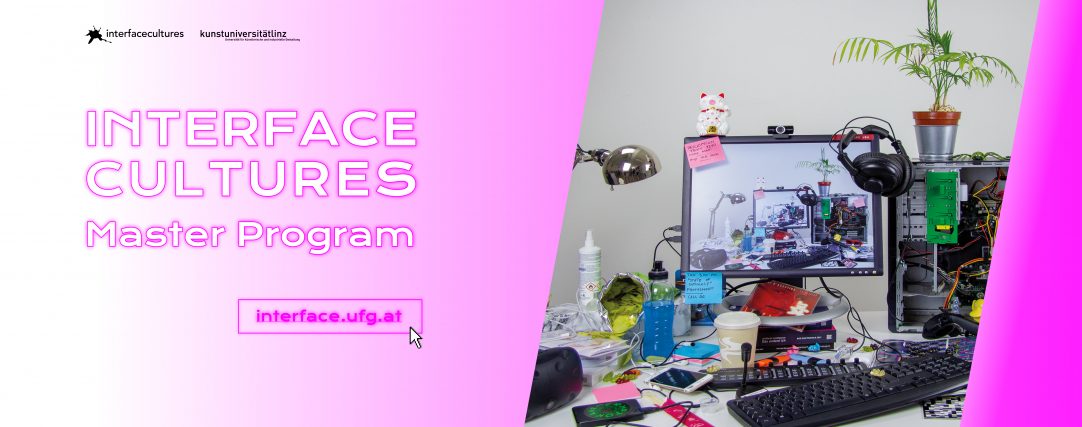“FANGo” and “Mapping Smart Futures” at Piksel Festival 2019
 This year Piksel Festival you can find our student Martin Nadal with his project “FANGo” recently reviewed by VICE magazine, and our former student Andreas Zingerle, our Univ. Ass. Davide Bevilacqua and Linda Kronman with their workshop “Mapping Smart Futures”.
This year Piksel Festival you can find our student Martin Nadal with his project “FANGo” recently reviewed by VICE magazine, and our former student Andreas Zingerle, our Univ. Ass. Davide Bevilacqua and Linda Kronman with their workshop “Mapping Smart Futures”.
21 – 23 November 2019
Bergen, Norway
official website: https://19.piksel.no/
FANGo – Martin Nadal
“FANGo” is a defense weapon against surveillance capitalism. Hidden under its appearance of mobile phone charger will be provided with a micro controller that takes control of the smartphone plugged in making queries to google, amazon and other search engines, launching videos in YouTube in order to deceive data brokers in their data capture process.
Facebook, Amazon, Netflix and Google were grouped under the acronym FANG as the most important and high-performing companies of the NASDAQ and pioneers of what is known today as surveillance capitalism.
In a similar way as industrial capitalism through its mechanics turned nature or work into a commodity such as real estate or labor, surveillance capitalism turns experiences that occur in the private sphere of the human being into commodities that can be bought and sold.
The difference of this type of capitalism is substantial as it integrates the human experiences of private realm in the production processes without the individual being fully conscious. This affects the economic sphere but also the independence of the human being, because with the logic of maximizing profits the companies will try to modify the user’s behaviour without the user being able to do much to defend himself.
The aim of the project is to disrupt this mechanics, adding noise to the captured data, making it difficult to transform the captured user data into predictions, thus devaluing the value of the extracted data.
The proposal presented consists of making a device in the form of a phone charger. When the user loads the mobile phone, a microcontroller simulates touches and interactions into the phone, adding noise to the captured data, making them unusable for companies and data brokers.
While the phone is charging, the microcontroller will perform searches, videos will be seen on YouTube will be given likes to Facebook posts, all these interactions will be captured by the data brokers without knowing that they are automatic, noise with the sole intention of worsening the quality of the data captured.
The “fangO” charger works in a similar way to click farms, when the phone is plugged in it is controlled by a microcontroller, simulated swipes and erratic interactions as if they were made by the user.
Mapping Smart Futures – Davide Bevilacqua, Andreas Zingerle, Linda Kronman
We are interested to continuously explore methods which brings forth new forms of artistic research, especially in context of digitalization, and everyday use of technology in urban environment. Following previous academic and artistic research projects ‘Behind the smart world’ and ‘The Internet of other people’s things’, we want to continue to focus on artistic research that investigates the relationship between increasingly corporatized cities and their citizens. In the research we intend to focus on smart city technotopias and their implementations. We are interested to artistically explore: 1) what implications corporate power has on the rights of citizens, 2) how it affects citizens’behavior and 3) how sustainable these smart city concepts are and if the Internet infrastructure is actually ready to serve the future demands.
A smart city: sustainable, green, effective and clean. It citizens protected from disasters, safe and secure. A sensing city full of life.This is how smart city proposals imagine our future urban life. Specially-built new cities, rising from swamps and marshland, built in deserts or on farming land. There is a disconnection between the vision of the smart city and the incomplete real city. In reality software fails, hardware becomes obsolete, the city is constantly under construction, projects are on hold, and interests of citizens and corporations are competing. Smart cities are actually business models, demo cities, test-beds and playgrounds to benchmark who is willing to become a citizen in these high-tech neoliberal environments.
In this workshop we want to investigate the sustainability aspect of smart cities and its underlying infrastructures. One of the aspects of the focus lies on the very same use of “sustainability” in the jargon of smart urban planners, which claim the eco-friendlyness of the smart world – which means saving resources and optimizing operational costs thanks to the adoption of better technologies. In this case, the sustainability becomes one further rhetorical dispositiv of green capitalism to enforce the production of more and more devices. Based on previous research in South Korea we observed material traces of smart city failures in form of empty malls, dysfunctional high-tech waste management infrastructure, and obsolete tele-presence technology. In the workshop we will unpack the omnipresence of technology in our ‘green’, sustainable, and clean cities and by applying Open Source Intelligence tools, citizen forensics and grassroot journalism we want to look at the current state of internet infrastructure in Scandinavia, with a special focus on Norway.
Together we will create a visual representation of our research on material traces, green electricity and eco data-centers.
